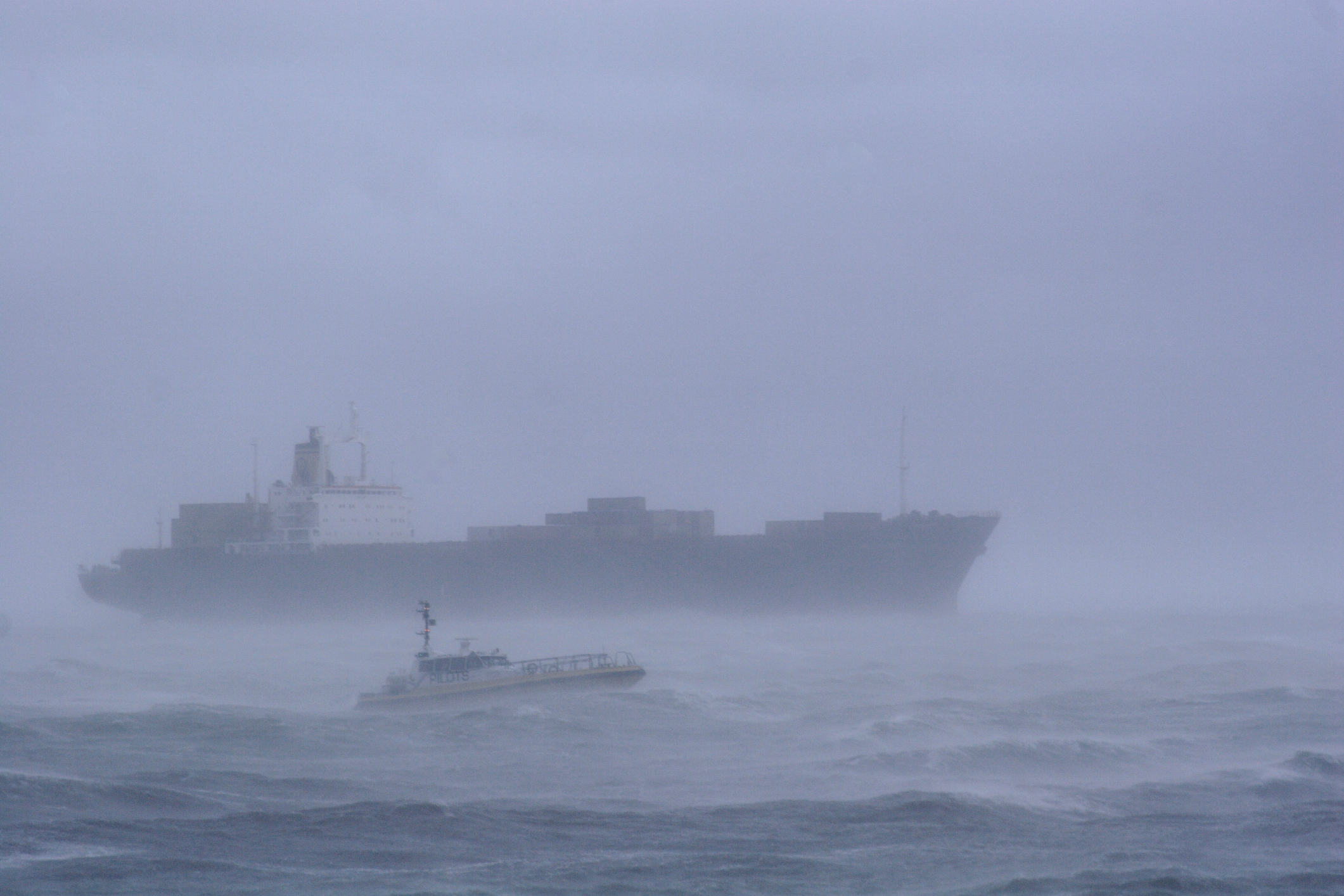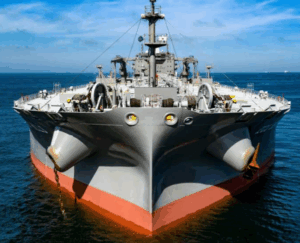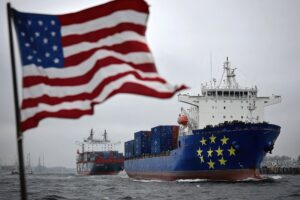Global shipping is entering a period of fragile growth, rising costs and mounting uncertainty, according to UN Trade and Development’s (UNCTAD) Review of Maritime Transport 2025, Staying the course in turbulent waters, released on Wednesday.
After firm growth last year, seaborne trade is expected to stall in 2025, with volumes barely rising (+0.5%). Long-distance rerouting caused by geopolitical tensions kept ships busier last year with a record of nearly 6% growth in ton-miles.
Political tensions, new tariffs, shifting trading patterns, and reconfigured shipping lanes are reshaping the geography of maritime trade.
The United States of America and several trading partners have announced policy measures, including new tariffs, and port fees in the United States for certain foreign-built or foreign-operated vessels.
The result is more rerouting, skipped port calls, longer journeys and ultimately increased costs. Energy shipping is also in transition: coal and oil volumes are under pressure from decarbonization efforts, while gas trade continues to expand.
Critical minerals – essential for batteries, renewable energy and digital economy as a whole – are becoming a new source of tension in global trade, with competition to secure supplies and add value domestically, UNCTAD said, adding that maritime logistics are key for developing countries in seizing critical minerals opportunities.
Freight rates have become more volatile, UNCTAD said, with disruptions such as the 2024 Red Sea crisis driving a surge that year, while ongoing geopolitical tensions in 2025 raise concerns about potential spillovers that could disrupt shipping activity in the Strait of Hormuz.
Environmental compliance costs, including emissions pricing, are redefining shipping economics.
Persistent high transport costs risk hitting developing countries hardest, particularly small island developing States (SIDS) and Least Developed Countries (LDCs).
UNCTAD calls for targeted measures to mitigate transport cost increases, strengthen port performance, advance trade facilitation and improve predictability in trade policies.
Ports are under strain from disruptions, leading to congestion and longer waiting times. According to UNCTAD, they face the need to invest in cleaner, more efficient and smarter operations. Digital systems such as maritime single windows and port community systems are helping some countries cut costs and delays, but many developing economies still lag.
UNCTAD urges governments to implement global commitments on trade facilitation and automation, and to expand public–private partnerships in port operations. As digitalization advances, cybersecurity emerges as a critical priority.
Shipping’s greenhouse gas emissions rose by 5% in 2024. Only 8% of the world fleet’s tonnage is equipped to use alternative fuels, and ship recycling rates remain low, according to UNCTAD.
The International Maritime Organization (IMO)’s Net-Zero Framework, expected to be considered for adoption in October 2025, will set a global fuel standard and introduce a GHG pricing mechanism from 2028, with a fund to potentially support developing countries.
Ship recycling will need to accelerate while upholding sustainable ship recycling practices. The Hong Kong Convention on safe and environmentally sound ship recycling entered into force in June 2025, covering 90% of the global recycling market.
UNCTAD warns that decarbonizing maritime transport will entail significant costs, including fleet renewal, port adaptation and alternative fuel infrastructure. Clear regulatory signals, greater investment and cooperation among governments, industry and financial actors will be essential to drive the transition.



